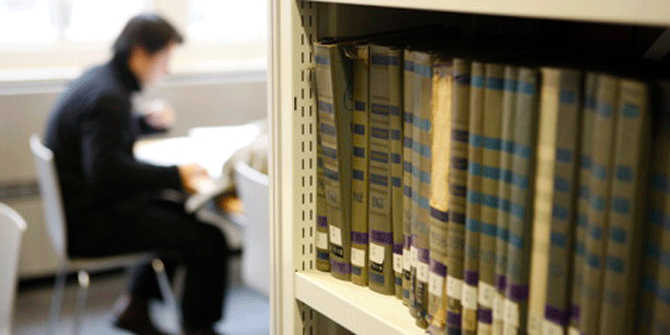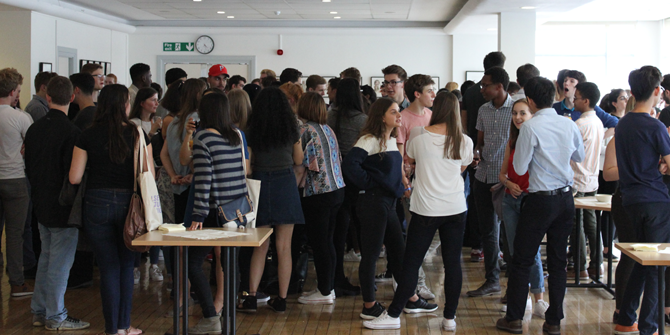In summer 2016, the Department of Government ran its research internship scheme for undergraduates for the second year. The programme enables BSc students to develop key skills by working with academic faculty on their research. We spoke to BSc student Trishna Kurian and Associate Professor Joachim Wehner about the internship scheme and their work on a project about voting behaviour in South African local elections.
Trishna Kurian, second year BSc Department of Government student:
What motivated you to apply for the research internship scheme?
After spending my first year reading political science papers which made many fascinating claims, I was really interested in seeing the process which led researchers to get to this end point. Hence, when the internship was advertised by the Government department I jumped at the opportunity to see this first hand.
Can you tell us a bit about the project you were working on with Joachim Wehner?
I was fortunate enough to work on a project with Dr Joachim Wehner, Associate Professor in Public Policy in the Department of Government, and Daniel Berliner of the University of Arizona, which looked into whether the publication of audit findings in South Africa impacted electoral performance.
What did you find most interesting about your internship?
When I read the description for the project it was something I was so interested in being a part of as it tied together three main areas of interest: international politics, corruption and voting behaviour. My main task was to assemble the dataset which they needed for their analysis; this included gathering and organising the audit results from all South African Municipalities over the last 10 years. This was one of the most satisfying parts of the project, as I was able to see how the work I did fitted into the initial findings of the paper. I also did research into trends in audit reporting in newspapers, which I really enjoyed as I was able to find out more about South African politics and the interesting tales of corruption that came with it. Doing these tasks and seeing how it tied into the study as a whole, has given me a real sentimental attachment to the project and I am really excited to see where it will go.
What did you learn from your experience as a research intern?
The experience afforded me with skills that I can take onto my professional career, further developing my knowledge of Excel and understanding of international databases. In addition, it spurred my interests in research, encouraging me to gear my degree to taking modules with a research based focus. I would highly recommend the Government Internship Scheme for anyone who is even remotely interested in research design and would like to get valuable hands on experience in learning more about this field.
Joachim Wehner, Associate Professor in Public Policy, Department of Government:
“LSE academics are incredibly lucky to teach some of the smartest undergraduates in the world, and the internship scheme gives us a chance to involve them in our research. Trishna researched and compiled a large amount of data that needed to be assembled for a project on voting behaviour in South African local elections. Specifically, we analyse whether and how audit information, which reveals the quality of local government and the extent of corruption, affects municipal elections. This is linked to fundamental political science questions about accountability and the effectiveness of checks and balances in new democracies.
Assembling a dataset is hard work that involves downloading and organising data from a variety of sources. This work is incredibly important. It needs to be done with great care to ensure the integrity of the data and, ultimately, the analysis. In lectures and presentations, academics focus on presenting a polished product, but the internship is an opportunity to get to know the “nuts and bolts” of doing empirical research. For me, one of the nicest moments was when I could show Trishna the first version of the full dataset that she helped us to assemble, and some promising initial results. Trishna did an outstanding job, and I was very pleased that she agreed to continue work on the project this summer.”
For more information on other internship opportunities, please visit the LSE website.
 Trishna Kurian is a second year BSc Government student. She is a student ambassador and is currently secretary and events manager of the LSE Undergraduate Political Review.
Trishna Kurian is a second year BSc Government student. She is a student ambassador and is currently secretary and events manager of the LSE Undergraduate Political Review.
Note: this article gives the views of the author, and not the position of the LSE Department of Government, nor of the London School of Economics.






